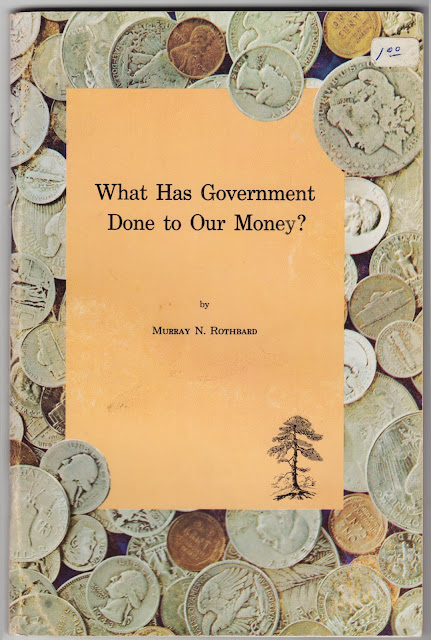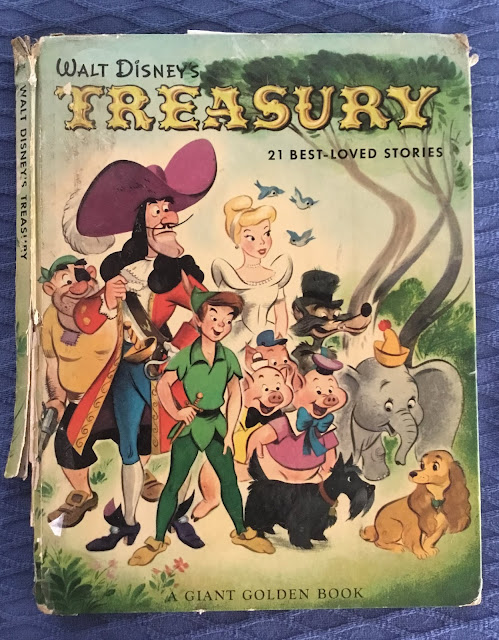What Has the Government Done to Our Money?
Title: What Has the Government Done to Our Money? (formerly published as Money, Free and Unfree)
Genre: Business & Finance
Author: Murray N. Rothbard (1926-1995)
Publisher: Pine Tree Press, Freedom School, Colorado Springs, Colorado
Series: ”Studies in Human Action“
Year: 1964 (second printing of 1963 book)
Pages: 50
Format: Paperback, staple-bound booklet
Provenance: Contains a memo on pale blue paper from Jody to Clyde: “Thanks for the use of this book – clear concepts & precisely on the money [smiley face]” Also sports a handwritten 1.00 price sticker on front cover.
Chapter Title Examples: The Value of Exchange; The Monetary Unit; The Shape of Money; The “Proper” Supply of Money; Money-Warehouses; The Economic Effects of Inflation; Gresham’s Law and Coinage; Permitting Banks to Refuse Payment; Central Banking: Directing Inflation; Going Off the Gold Standard; Fiat Money and Gresham’s Law; Government and Money.
Opening Sentence: “Few economic subjects are more tangled, more confused, than money.”
Random Passage: “It should be clear that, economically, there is no difference whatever between a bank note and a bank deposit. Both are claims to ownership of stored gold: both are transferred similarly as money-substitutes, and both have the identical three limits on their extent of use.”
Goodreads Review: “Confused about how the Federal Reserve works, or why we need it? Can't figure out what causes inflation? Does the whole financial crisis have you baffled? This is a great place to start working through the muck. If you don't read anything else, read the section on money warehouses, though the whole book is worth a read.” — Bill Peacock, June 27, 2010.
Notes: Booklet argues for the rights of individuals and the free market to determine the value of money, preferably with the least government intervention possible. A strong practitioner of the Austrian School of economic theory, Rothman was an acolyte of Ayn Rand and (later on) a prominent member of the Libertarian U.S. political party.






Comments
Post a Comment